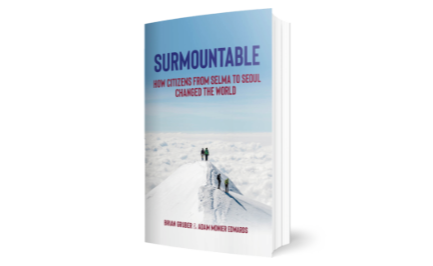One of the biggest questions we decide repeatedly as a society is how much to spend on our problems today versus how much we should allocate toward preparing for tomorrow. This dilemma affects nearly every aspect of our lives.
Consumers
Consumers balance renting or leasing at a reasonable price with buying assets at a much greater expense. How much can we afford to invest in the future when many of us live paycheck to paycheck and are barely getting by now – but how can we ever get ahead if we always have the same costs and are never able to benefit from compounding returns?
Government
Government officials consider the allure of long-term infrastructure plans that may outlive their own tenure while short-term spending would be felt more rapidly by their constituents. Do they want to leave a legacy or do they only yearn to get reelected – but if they only pursue immediate needs then how will any major capital projects ever get funded?
Corporations
Corporations debate budgets that pit research and development toward new product lines against advertising in order to sell what they have already built. Do they want to grow their market cap or do they only care about quarterly returns for shareholders – but how will they respond to competitors working on the next big thing if they never innovate?
Non-Profits
We all face these challenges. Sometimes overcoming them is a key responsibility of our job. Why then, do citizens who want to give back almost always only consider the immediate needs of their community? How can a non-profit truly pursue systemic change to solve problems at scale when their hands are tied by delivering most of their hard-raised revenue to those in need right now?
Tax designations
The untold story of why non-profits struggle to solve problems at scale
When you donate to a US charity, chances are that it will be what the IRS determines to be a 501(c)(3) organization. This benefits the non-profit in two ways: donations they accept are tax-deductible by citizens and their revenues are tax-exempt. There are over 1 million of these associations operating in the US.
A much less common structure is labeled with a 501(c)(4) designation. There are roughly 60,000 of these tax-exempt entities in the US known as social welfare organizations that mostly support volunteer firefighters or veterans. Only about 10% of them actually advocate for the civil rights of the general public. The main difference that the IRS cares about is that these groups are allowed to spend up to half of their revenue on lobbying the government, whereas this is restricted to approximately 5% of budgets for a 501(c)(3). The trade-off for this action is that donations to 501(c)(4) non-profits are not tax-deductible.
Your first instinct may be to trust that tax-deductible donations will go to better use, but actually that has no weight as to whether an organization is ethical or not. For the most part, a 501(c)(4) group that advocates for the general public is simply trying to influence the future through policy rather than providing services that meet the needs of today. Of course the actions of many 501(c)(3) organizations can also improve tomorrow, but they typically do so through more indirect means such as arguing court cases or increasing the quality of life for parents so they can better provide for their children. However, that means less than 1% of nonprofits are really equipped to achieve their goals.
Corporations have had great returns on investment (ROI) by investing in comparable non-profit 501(c)(6) business associations and chambers of commerce to influence policy. Citizens need at least an equal if not greater voice to represent them and that is the goal of a 501(c)(4). Unfortunately these organizations are less upfront about this dichotomy because they are worried that the lack of a tax deduction will convince people to donate elsewhere, which will at best ensure the status quo.
Surmountable, PBC was founded to provide clarity for citizens to help them decide if and how they want to address our environmental, social, and governance problems either now or in the future. Both are critical yet require different actions in order to make a difference for our society today or change the world for tomorrow. Are you ready to find out how?
Do you feel your organization or your favorite charity is not doing enough to get at the heart of solving problems despite its good intentions? Social activists throughout history have felt the same and we can learn a lot from their perseverance in overcoming challenges.

What we can learn from women's suffrage?
Women could only vote in four states when Susan B. Anthony passed away. Organizers had fallen back on a timid strategy to claw meager benefits one by one. Alice Paul did the math and recognized it would be two more generations before universal suffrage was the law of the land, so she started her own organization to forgo minor incremental gains for today in favor of pursuing a federal movement to ensure a fairer tomorrow. Read more about the 19th Amendment in our groundbreaking book on social movements!



